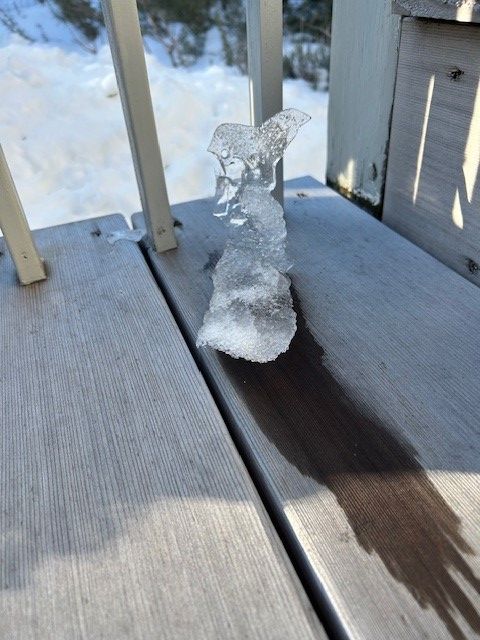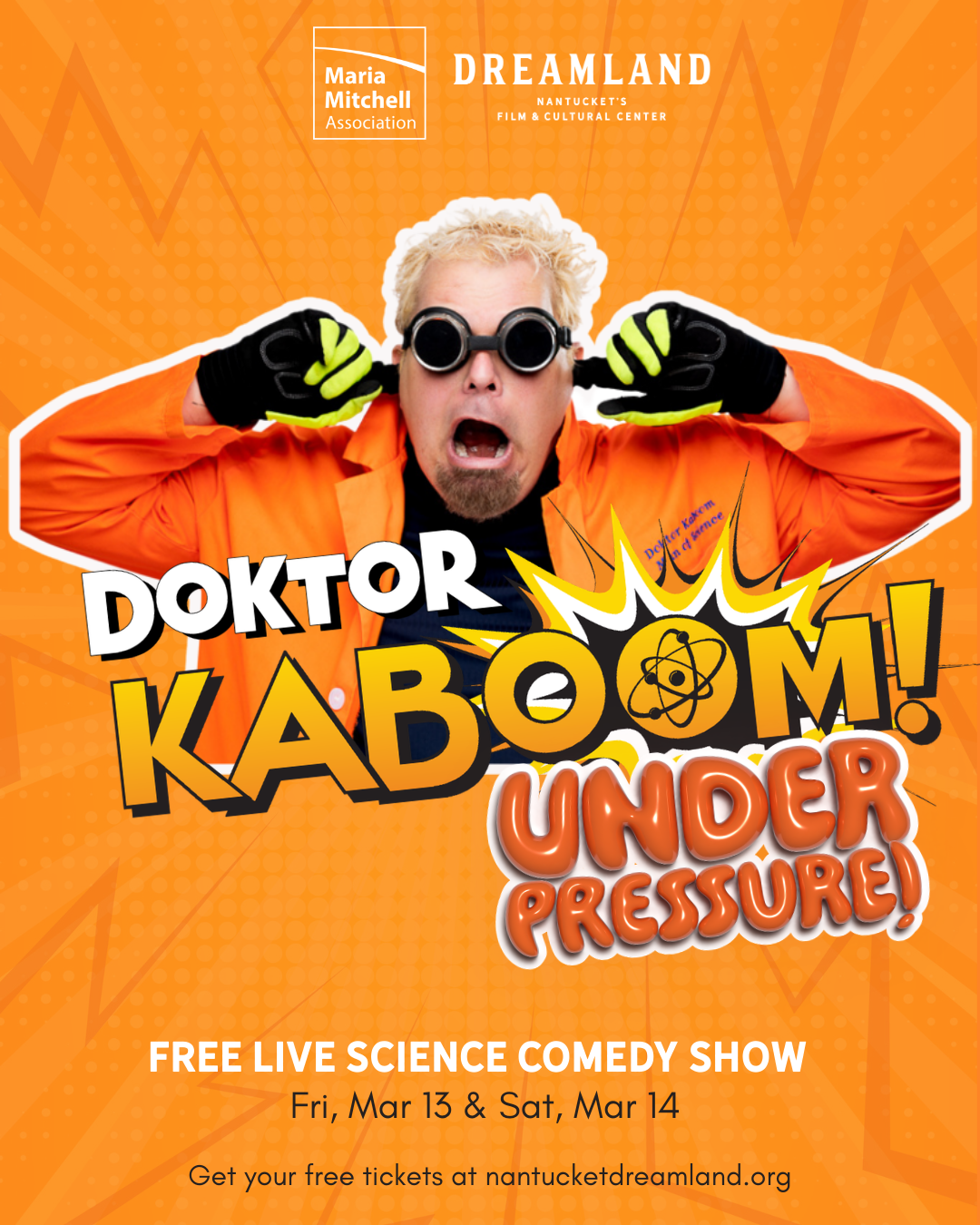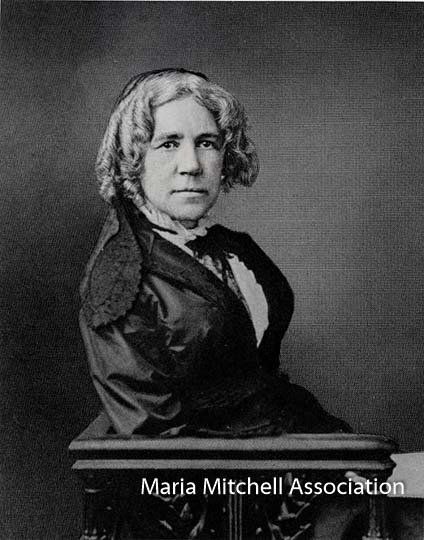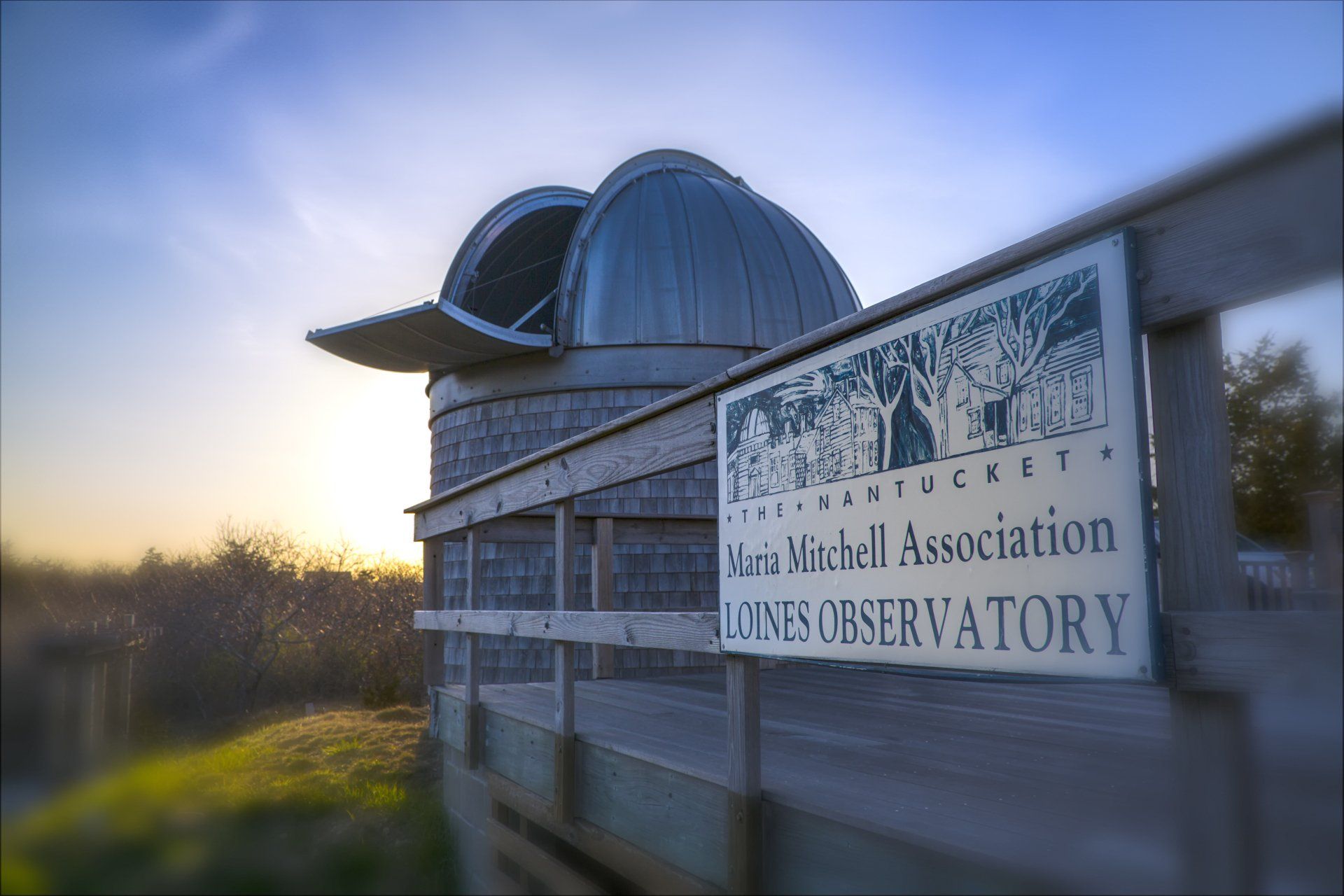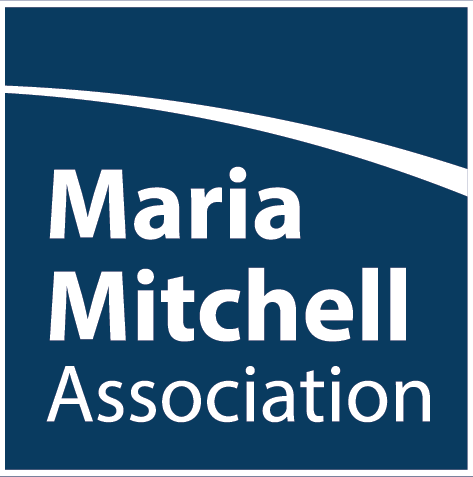Nantucket Maria Mitchell Association Astronomers Travelled to Largest Ground-based Optical Telescope in the World for Research
NANTUCKET, MA — Last December, the MMA astronomers travelled to the site of the largest ground-based optical telescopes in the world, the Keck Observatory, located on the Big Island of Hawai’i. The MMA’s National Science Foundation (NSF) astronomy post-baccalaureate research fellows, Emmy Wisz and August Muller, travelled to Keck to obtain observations of distant galaxies for their research projects focused on unraveling the mysteries of the universe.
Located at nearly 14,000 feet elevation near the summit of Mauna Kea, Keck is accessed remotely by astronomers around the world who operate the telescopes’ scientific instruments and collect astronomical data. The 10-meter telescopes are essential tools for many research projects, so groups must participate in a competitive process of proposal submission to secure observing time. Because of the effects of potentially severe altitude sickness, astronomers observe from the base of the mountain ̶ at Keck Headquarters in Waimea. Over the course of each night, astronomers operate the instruments from the remote operations room at Keck Headquarters, while being in continual contact with the telescope operators who are located on the summit.
Wisz and Muller joined in on observations as part of two international collaborations that were co-founded by the MMA’s Director of Astronomy, Dr. Regina Jorgenson, and supported by grants from the NSF). The first collaboration, called the Fast and Fortunate for FRB Follow-up, or F4 Collaboration, is using the Keck telescopes in an effort to probe the cosmic web, to understand what makes up the space between galaxies, and to identify the progenitors of the still mysterious fast radio bursts – extremely energetic and brief flashes of radio radiation. The second collaboration, called the Multi-wavelength Analysis of Neutral Gas Observed in Emission and Spectroscopy, or MANGOES Collaboration, is utilizing the cutting-edge astronomical technology on the largest telescopes in the world to detect and study the elusive “baby galaxies” – those forming just a few billion years after the Big Bang.
While at Keck, Wisz and Muller met several of the collaborations’ members, including Prof. J. Xavier Prochaska of the University of California, Santa Cruz and Dr. Marc Rafelski of the Space Telescope Science Institute, and learned first-hand how to conduct observations with Keck’s cutting-edge instruments.
When asked to describe their experience participating in the observing run, and what it was like to travel to the Keck telescopes, post-baccalaureate research fellow Emmy Wisz stated, “I feel incredibly lucky to have been able to be so intimately involved in this process for four nights, especially as a junior astronomer. I am especially lucky that three of the four nights I was involved in were clear with no major weather issues! There is incredible value in seeing how the telescopes and instruments work in real-time and watching the data be read out after each exposure.”
August Muller added, “Keck is an optical telescope, which means that most of the light measured is that which we can see with our eyes. While some other types of telescopes (especially those observing radio) can operate all day long, optical telescopes really do need to be used only at night. Nothing has made me feel more like an astronomer than the experience of working all night and sleeping once the sun rises in the morning.”
The Maria Mitchell Association was founded in 1902 to preserve the legacy of Nantucket native astronomer, naturalist, librarian, and educator, Maria Mitchell. After she discovered a comet in 1847, Mitchell’s international fame led to many achievements and awards, including an appointment as the first female professor of astronomy at Vassar College. Maria Mitchell believed in “learning by doing” and today that philosophy is reflected in the MMA’s mission statement, programs, research projects, and other activities. The Maria Mitchell Association operates two observatories, a natural science museum, an aquarium, a research center, and preserves the historic birthplace of Maria Mitchell. A wide variety of science and history-related programming is offered throughout the year for people of all ages.
###
For Immediate Release
January 31, 2024
Contact: Regina Jorgenson
rjorgenson@mariamitchell.org
Recent Posts
